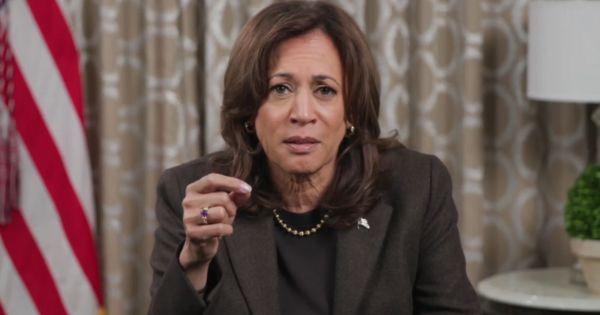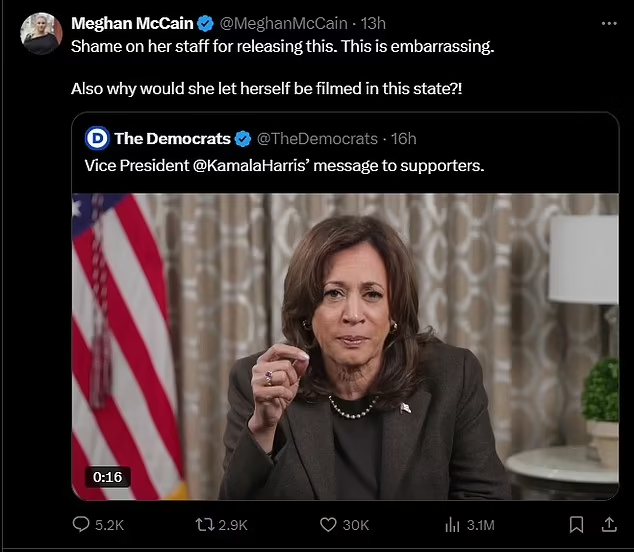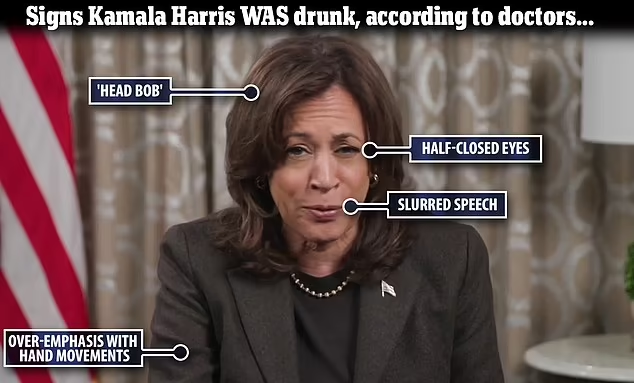The Speculation and Mockery Surrounding Kamala Harris’s Video Tells a Bigger Story
Ever since Donald Trump’s election, public figures who are women, minorities, or both have found themselves under a microscope, facing relentless scrutiny for actions that often escape such intense examination when performed by others. Vice President Kamala Harris’s recent video message, intended to thank campaign staff and supporters, has become the latest example of this phenomenon. Instead of being celebrated or even neutrally received, her appearance has spurred speculation, memes, and accusations that feel rooted more in bias than in objective assessment.
Today we come together to reflect on what we are thankful for, to share food and stories with family and friends, and to express our gratitude for all those who serve our nation.
— Vice President Kamala Harris (@VP) November 28, 2024
We are wishing you a very happy Thanksgiving. pic.twitter.com/Tz805c7HUr
The video in question, released just before Thanksgiving, shows Harris expressing gratitude to supporters while encouraging them to continue their work. However, critics seized on her slightly slurred words and relaxed demeanor, with some on social media sharing edited clips that mocked her by suggesting she was drunk, complete with added visuals of liquor bottles. Beyond internet jesters, even medical professionals have weighed in, offering speculative commentary about her state of mind and health without any direct evidence.
A Stark Contrast Between Harris and Trump’s Holiday Messages
Vice President Kamala Harris Thanksgiving message focused on unity and gratitude, sitting alongside her husband, Doug Emhoff. She highlighted the sacrifices of service members and their families, saying, “On Thanksgiving, we also express our gratitude as a nation for our service members and their families, who sacrifice so much to protect our nation and our most sacred values.” Emhoff echoed this sentiment, adding, “We are truly grateful for their service.”
In stark contrast, Donald Trump’s Thanksgiving message struck a divisive tone. On Truth Social, he wrote, “Happy Thanksgiving to all including to the Radical Left Lunatics who have worked so hard to destroy our Country, but who have miserably failed, and will always fail, because their ideas and policies are so hopelessly bad that the great people of our Nation just gave a landslide victory to those who want to MAKE AMERICA GREAT AGAIN.”
While Vice President Harris’s message is meticulously dissected and scrutinized as a “drunken” video, Trump’s combative rhetoric often seems to be glossed over, highlighting a striking disparity in how a white man can do wrong without inquiry or critique and a women can do right with overwhelming inquiry and criticism.
Doctors Weigh In Without Concrete Evidence
Dr. Carole Lieberman, a psychiatrist with experience treating alcoholics, and Dr. Stuart Fischer, an emergency medicine physician, both speculated that Harris could have been under the influence of alcohol. Dr. Lieberman pointed to her “half-closed eyes, slightly slurred speech, and over-emphasized hand movements” as potential signs, while Dr. Fischer added that her head movements and pauses in speech might indicate intoxication. Yet, these assertions are based solely on viewing a short video clip, a method far from scientifically rigorous.
Others floated alternative explanations, such as exhaustion, medication side effects, or an attempt to appear relatable and emotionally genuine. Still, the leap to insinuate alcohol consumption—particularly in the absence of any concrete evidence—raises uncomfortable questions about why such narratives so readily gain traction.
A Pattern of Disproportionate Criticism
The scrutiny Harris faces often appears tinged with sexism and racism. Throughout her career, critics have frequently characterized her as overly ambitious, disingenuous, or unqualified—labels that echo stereotypes historically used to undermine women and people of color in positions of power. These stereotypes are compounded by the societal tendency to dissect the behavior of minority leaders through a harsher lens, as if their every move must meet an unattainable standard of perfection.
This phenomenon isn’t new. From Alexandria Ocasio-Cortez’s choice of clothing to Michelle Obama’s expressions of emotion, public discourse has repeatedly magnified and distorted the actions of minority women, often in ways that reveal underlying prejudices. Harris’s case is no different. By comparison, similar behaviors by male politicians, especially white men, are often overlooked or dismissed as quirks.
The reaction to Harris’s video highlights another troubling trend: the increasing weaponization of social media to distort public perception. Edited clips and baseless accusations spread rapidly, shaping narratives before facts have a chance to emerge. In this case, social media’s amplification of assumptions about Harris being “drunk” has overshadowed the original intent of her message.
Time to Shift the Lens of Scrutiny
Rather than questioning why Harris might appear tired or speculating about her health, it’s worth asking why these speculations arise so quickly and why they’re so often framed negatively. Could it be that society is more comfortable tearing down figures who challenge the status quo—especially when those figures are women or minorities?
The reactions to Harris’s video reveal more about societal biases than about Harris herself. The rush to ridicule or diagnose her from afar underscores a troubling reality: in the post-Trump era, public figures who don’t fit traditional molds are frequently subjected to ridicule and skepticism that go beyond legitimate critique. Instead of engaging in productive discussions about leadership and policy, too often, the conversation devolves into baseless speculation and mockery.
Kamala Harris’s video was a message of gratitude and encouragement. That its reception has been clouded by accusations and memes speaks volumes about the biases still pervasive in public discourse. Perhaps it’s time to examine the critics more closely than the subjects of their scrutiny.










